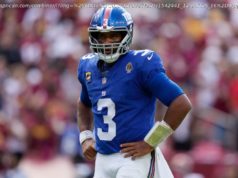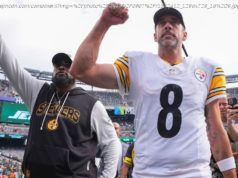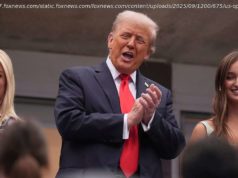Donald Trump had one ironclad set of principles, which guided his entire business strategy, which he suddenly abandoned without explanation.
Last summer, Donald Trump sat down with the New York Times, which asked whether Special Counsel Robert Mueller will have crossed “a red line” if the investigation into the Russia scandal extends to include examinations of the resident’s finances. “I would say yeah. I would say yes,” he replied, adding, “I think that’s a violation.”
Naturally, this generated no shortage of speculation as to why Trump is so concerned about scrutiny of his finances. For that matter, there’s no reason to separate questions about the president’s finances with the Russia scandal – because as Rachel has explained on the show more than once, there’s an amazing number of people from Russia who’ve purchased Trump properties over the years. (My personal favorite is the story of Dmitry Rybolovlev, the fertilizer king, who purchased a derelict Florida estate from the future president at an extreme markup.)
Keep all of this in mind when reading this amazing report from the Washington Post over the weekend on Trump’s unexplained shift in strategy, evolving from someone who loved taking on debt and spending others’ money to someone who was suddenly flush with cash.
The entire Post piece is well worth your time – it’s an impressive piece of reporting, and I’m only touching on some of its revelations – but pay particular attention to the fact that Trump had one ironclad set of principles, which guided his entire business strategy, which he suddenly abandoned without explanation.
Barbara Res, who was a top executive for Trump throughout the 1980s and continued to work for him for most of the 1990s, told the Post, “He always used other people’s money. That’s for sure. Not cash. He always got somebody to put up funds for him. To put up the money. And he’d put up the brilliance.”
At face value, his willingness to abandon this approach seems difficult to understand. Trump’s entire business philosophy was tied to the belief that he could succeed by getting money from others – investors, banks, partners, et al – and putting it to good use. But he adopted an entirely new posture in 2006, as the real-estate bubble started to burst and not long before some of his enterprises went bankrupt, investing millions in cash on new properties, some of which continued to lose money after the purchases.
What was it exactly that led Trump to embrace an entirely new investment strategy, with liquid assets of unknown origins?
While that question lingers, the New York Times had an entirely separate report, which also ran over the weekend, on Michael Cohen, Trump’s lawyer and go-to fixer, who “built a shadowy business empire,” which grew after he joined the Trump Organization in 2007.
The article covers a lot of ground – it, too, is well worth your time – but this jumped out at me.
The more we learn about Trump World’s finances, the louder the questions become.






